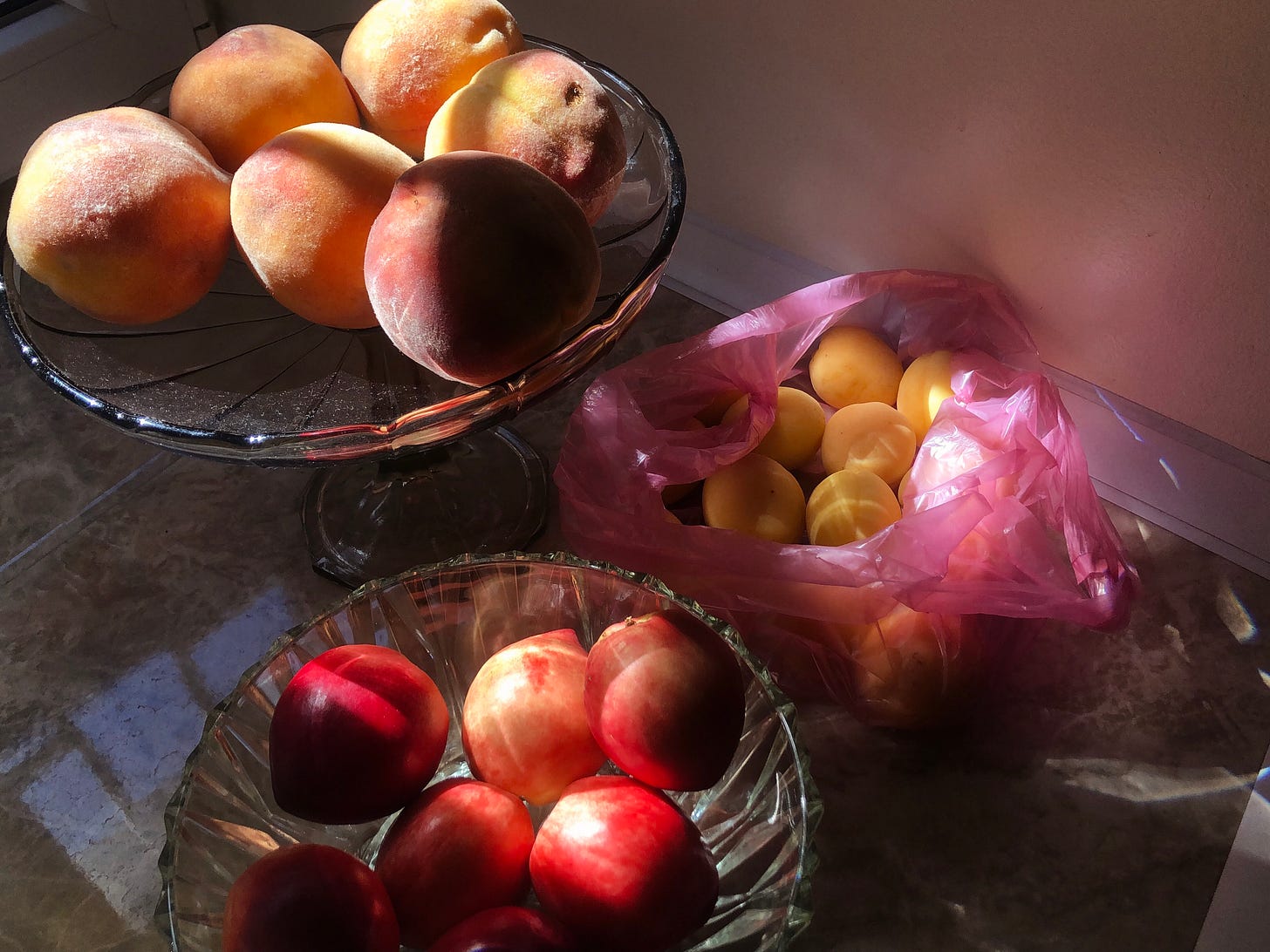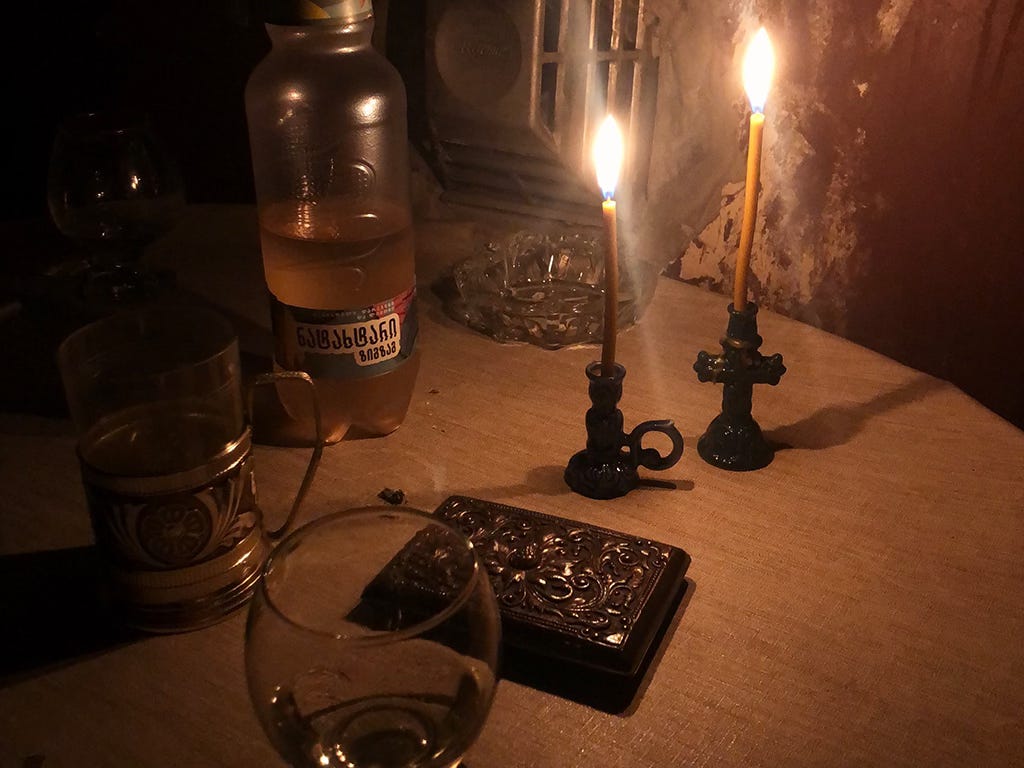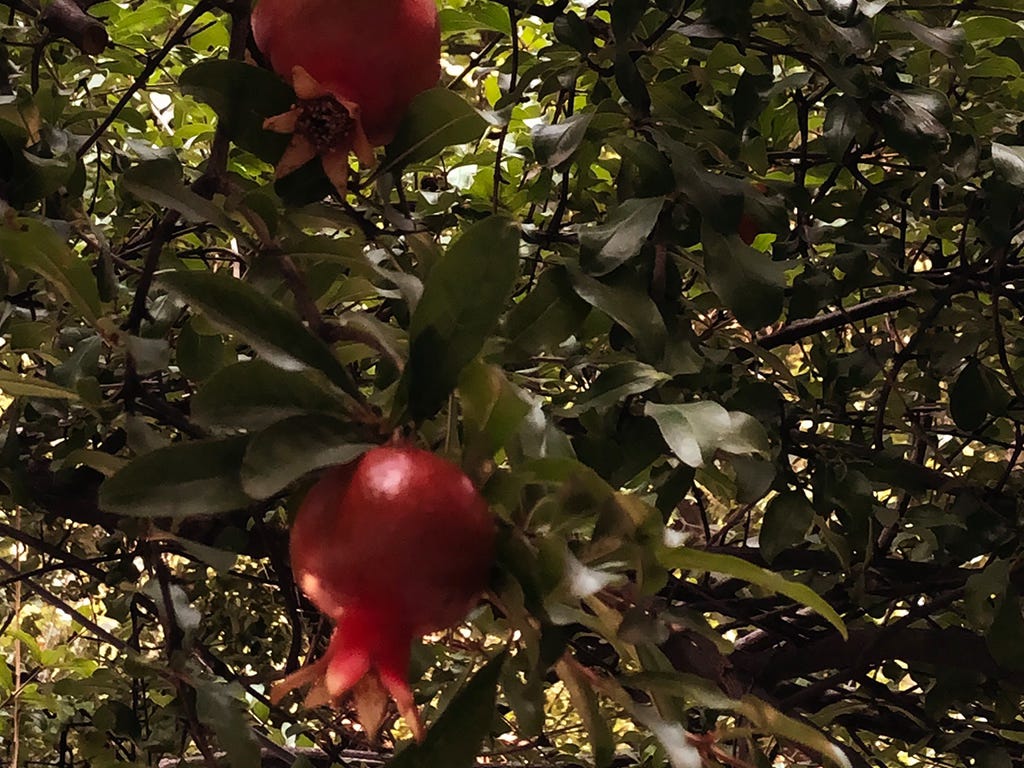Few things in my life have made me feel so dismal so immediately as walking into the lobby of the Shard at noon on a Wednesday. Ten seconds inside, and a security guard who I haven’t seen coming looks me up and down and says with a strange, calm malice, “I don’t want to be here either, you know.” He walks away, still staring at me, and it feels as though I’ve just walked onto the set of a low budget zombie film, oblivious, and everyone around me is mid-scene. The security guard reminds me of the man who hit me on Chalk Farm Road in broad daylight — he walked away just like that, staring, with the strange, calm malice.
I think I would prefer outright hostility. It would at least be more comprehensible.
On the tube, I read my friend Anastasia’s memoir, stone birches. The first chapter is about Iceland, and when I stand to get off the tube I am suddenly face-to-face with an advertisement for IcelandAir which I’ve never seen before, which tells me to go “aurora hunting”. That is what I am doing while reading her book — aurora hunting. She has told me in person, in voice messages and in emails about many of the events she writes about, but it’s different like this, not directed to me, her friend, but to a larger entity. I devour it, almost miss my stop, and spend most of the day in a haze of her words. They change the way I look at the world.
The simple serendipity of the IcelandAir sign makes me think about the second time the universe brought me and Anastasia together in the real world. I was living in Tbilisi, and had just that day recovered from Covid, finally liberated from my flea-infested quarantine prison soundtracked by liturgical chants from the nearby church. It was 42°C and I had spent five days in a wallpapered box with only four stray cats for company. The whole thing had been a fever dream.
I registered that I was negative at the nearby test centre and promptly fainted, underneath a wall of at least a hundred Orthodox icons. Saw that Anastasia was coming to Tbilisi, and told her she could stay with me. Somehow dragged myself to celebrate my freedom with friends in the Russian bar at the top of the hill, then returned to the flat to wait for her. She was crossing the Russian/Georgian border in the car of some Polish family, I later discovered, and arrived at 1am, more than a little broken. I ran down to the cobbled street to meet her, past the carpet shop, paid her taxi driver and forced myself to not embrace her — she was already too overwhelmed. “I didn’t think I could stay with you, I didn’t even bother to ask,” she said. “I thought you were still in quarantine.”
Anastasia and I spent one of the most beautiful nights of my life together in that tumbledown flat, with my friend Poppy, on the communal wooden balcony populated by dust-encrusted plants and reject furniture. We huddled around the low table, drinking Georgian lemonade with star anise, constantly righting the spindly church candles which collapsed so gracefully in their crucifix holders.
At around midnight a storm broke, and, to the strains of Dance Fever, we were infected by that wild euphoria that comes when it rains after days of unbearable heat. Leaving the windows and door open, we ran out into the courtyard where the stones were slick with water and orange light, and danced under the flashes of lightning. Everyone had their windows open, welcoming in the slight chill, and so we danced in ten kitchens at once. Cats howled. An old man on his balcony stared at us, expressionless. We were sodden and overjoyed.
The next morning we woke early so that Anastasia could catch a bus — to Batumi, of all the godforsaken places. I’ve never seen sunlight like there was then — fresh and promising. While I was brushing my teeth I heard Anastasia scream, and ran to the bedroom just in time to see one of the stray cats bounding out of the door. It had spent all night asleep under the table right next to Anastasia’s head, sheltering from the storm, concealed by the heavy embroidered tablecloth. We couldn’t stop laughing. Georgian cats are not like any cats I’ve ever seen before — they are skinny and deathly serious and their faces look eerily human. We had only just stopped laughing when a second cat also appeared from under the table and took off. Finally an explanation for the fleas.
The walk to the bus stop took us along one of the most touristic streets of the old town — my daily walk to class. The shops were only just opening. As we passed underneath the small tree that I saw every day, I noticed for the first time that its branches were heavy with small pomegranates, glistening in the sun.
The whole time I was in Tbilisi I felt keenly that it would soon end. For one reason or another (and there were many), I could rarely relax into the joy that I felt there. That night was one of the few moments when I could. I hugged Anastasia goodbye at the bus stop, earlier than we needed to part in an effort to escape a man who wouldn’t leave us alone, and wended my way back to the flat by myself, through the humid underground markets and dusty streets. Sunlight spilled in through the door of the apartment and I felt clean, and full of love.
Now, at home in London, I stare for a while at the small pomegranate sitting on my bookshelf. Not plucked from that tree, but from a different, secret one, hidden behind my flat. I remember how Yana and I twisted it off the branches furtively, running away from yet another observant old man. It travelled from Georgia to Germany to France, wrapped in clothes. It’s dry now, completely, its insides shrivelled to nothingness and its skin dull. When you tap on it it sounds hollow. But I can still remember its heavy waxiness when I held it in my palm years ago.
I think of a conversation I had with my mother a few days ago. “You got off pretty lightly,” she said of my teenage experience. As fiercely as I love her these days, I found it hard to listen to this. I’m unsure if she’s trying to rewrite the past or if she genuinely didn’t notice. Something must have happened to me during those years to give me such a strong conviction that all good things must end, abruptly and painfully. Do any of us really get off lightly?








tilda I finally logged into the sub stack, now I feel like a delighted grandma, because your words change how I look at the world as well, they always have reminded me of all the little corners filled with light that I tend to forget about.